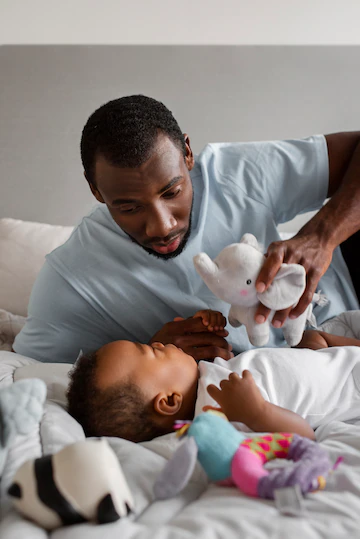Introduction:
Potty training is a significant milestone in a toddler’s development, and it can sometimes be a challenging process for both parents and children. However, with the right approach and some helpful tips, toilet training can be a smoother and more successful experience. In this article, we will discuss valuable potty training tips specifically tailored for parents in South Africa. By understanding cultural norms, incorporating local practices, and maintaining a positive mindset, you can navigate this important phase with confidence and support your child’s transition to using the toilet independently.
- Timing is crucial:
In South Africa, the timing of potty training is often influenced by cultural practices and individual readiness. While there is no universally perfect age to start, most children in South Africa begin toilet training between the ages of 2 and 3. It’s essential to observe signs of readiness, such as showing interest in the toilet or indicating discomfort with soiled diapers. Waiting for your child to exhibit these signs ensures a more receptive and successful potty training experience.
- Establish a routine:
Creating a consistent toilet routine helps toddlers understand expectations and feel secure during the potty training process. Encourage your child to sit on the potty at regular intervals, such as upon waking up, after meals, or before bedtime. Additionally, encourage them to use the toilet when they show signs of needing to go, such as squirming or holding their diaper. A routine instills a sense of predictability, making it easier for children to adapt to using the toilet independently.
- Encourage independence:
In South African culture, fostering independence is highly valued. Apply this mindset to potty training by allowing your toddler to participate actively. Let them choose their potty seat, underwear, or toilet training aids. Provide step stools to help them reach the toilet or basin comfortably. Empowering your child to make choices and take ownership of their potty training journey encourages motivation and self-confidence.
- Use positive reinforcement:
Positive reinforcement is an effective technique in potty training. In South Africa, praise and encouragement are commonly used to motivate and reward children. Celebrate every successful trip to the toilet with verbal praise, high fives, or a small treat, like a sticker or a special privilege. However, avoid punishment or shaming if accidents occur, as this can create anxiety and hinder progress. Instead, provide gentle reminders and reassurance to help your child learn from their mistakes.
- Embrace cultural practices:
South Africa is a diverse country with various cultural practices. Embracing these practices can make potty training more relatable and enjoyable for your child. Some families use traditional songs or storytelling to engage and entertain their toddlers while they use the toilet. Incorporating these cultural elements can help create a positive association with potty training and strengthen the bond between parent and child.
- Be patient and persistent:
Potty training is a process that requires patience and persistence. Accidents will happen, and setbacks are normal. It’s essential to remain calm, avoid pressure, and allow your child to progress at their own pace. Stay consistent with the routine, offer gentle reminders, and continue to reinforce positive behaviors. Remember that every child is different, and comparing your child’s progress to others can create unnecessary stress.
Conclusion:
Potty training your toddler in South Africa can be an exciting and rewarding experience when approached with understanding and cultural sensitivity. By considering the individual needs of your child, establishing a routine, embracing cultural practices, and providing positive reinforcement, you can navigate this significant milestone successfully. Remember, potty training is a gradual process, and with patience, persistence, and a positive mindset, your child will soon be confidently using the toilet independently.










